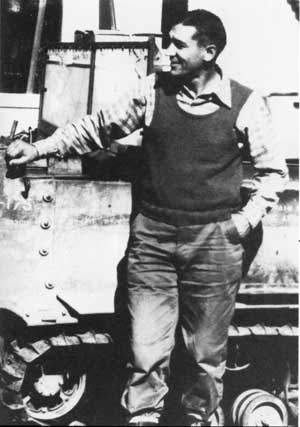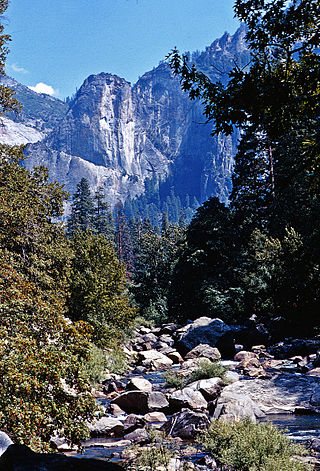Related Research Articles
The conservation movement, also known as nature conservation, is a political, environmental, and social movement that seeks to manage and protect natural resources, including animal, fungus, and plant species as well as their habitat for the future. Conservationists are concerned with leaving the environment in a better state than the condition they found it in. Evidence-based conservation seeks to use high quality scientific evidence to make conservation efforts more effective.

NatureScot is the operating name for the body formally called Scottish Natural Heritage. It is an executive non-departmental public body of the Scottish Government responsible for the country's natural heritage, especially its natural, genetic and scenic diversity. It advises the Scottish Government on nature conservation, and acts as a government agent in the delivery of conservation designations, i.e. national nature reserves, local nature reserves, national parks, Sites of Special Scientific Interest (SSSIs), Special Areas of Conservation, Special Protection Areas and the national scenic areas. It receives annual funding from the Government in the form of Grant in Aid to deliver Government priorities for the natural heritage.
The National Audubon Society is an American non-profit environmental organization dedicated to conservation of birds and their habitats. Located in the United States and incorporated in 1905, Audubon is one of the oldest of such organizations in the world. There are completely independent Audubon Societies in the United States, which were founded several years earlier such as the Massachusetts Audubon Society, Indiana Audubon Society, and Connecticut Audubon Society. The societies are named for 19th century naturalist John James Audubon.

The Nature Conservancy (TNC) is a global environmental organization headquartered in Arlington, Virginia. As of 2021, it works via affiliates or branches in 79 countries and territories, as well as across every state in the US.

Laurance Spelman Rockefeller was an American businessman, financier, philanthropist, and conservationist. Rockefeller was the third son and fourth child of John D. Rockefeller Jr. and Abby Aldrich Rockefeller. As a trustee of the Rockefeller Brothers Fund, he provided venture capital for Intel, Apple Computer and many other successful start-ups. Rockefeller was known for his involvement in wilderness preservation, ecology and the protection of wildlife. His crusade was the establishing of a conservation ethic, and he was declared America's leading conservationist by Lady Bird Johnson.

The National Wildlife Federation (NWF) is the largest private, nonprofit conservation education and advocacy organization in the United States, with over six million members and supporters, and 51 state and territorial affiliated organizations.

Frances P. Mainella was the 16th Director of the National Park Service of the United States and first woman to hold that position. She was appointed by President George W. Bush and confirmed by the U.S. Senate in 2001. She announced her retirement in July 2006 and resigned effective October 15, 2006. Mary A. Bomar, was sworn-in as the 17th Director on October 17, 2006. Mainella was in charge of the NPS when it allowed Redskin's Owner Dan Snyder to illegally remove 130 trees from his property, and while the park ranger who blew the whistle on this activity, Ranger Robert M. Danno, was persecuted at length. She subsequently gave contradictory accounts of this to federal investigators.

The California Natural Resources Agency (CNRA) is a state cabinet-level agency in the government of California. The institution and jurisdiction of the Natural Resources Agency is provided for in California Government Code sections 12800 and 12805, et seq. The agency has six departments, 10 conservancies, 17 boards and commissions, three councils, and one urban park in Los Angeles that consists of two museums, the California Science Center and the California African American museum. Through its 25 departments, conservancies and commissions, the Natural Resources Agency is responsible for protecting prehistory history, natural landscapes and cultural sites, monitoring and stewarding state lands and waterways, and regulating fish and game use, as well as private lands and the intersection with federal lands and waters.

Aldo Starker Leopold was an American author, forester, zoologist and conservationist. Leopold served as a professor at the University of California, Berkeley, for thirty years within the Zoology, Conservation, and Forestry departments. Throughout his life, Leopold was a public face for science. He was active in numerous wildlife and conservation groups and made significant research contributions in ornithology, mammalogy, and wildlife ecology. Leopold is notable for his ecosystem management paper, the Leopold Report, and his considerable presence in some of the most controversial wildlife issues, including national park wildlife policy, predator control, wildlife refuge, and fire policy.
The Conservation Fund is a U.S. nonprofit organization with a dual charter to pursue environmental preservation and economic development. From 2008–2018, it has placed more than 500,000 acres under conservation management through a program whose goal is to purchase and permanently protect working forests. Since its founding in 1985, the organization has protected land and water in all 50 states, including parks, historic battlefields, and wild areas. The Fund works with community and government leaders, businesses, landowners, conservation nonprofits and other partners to integrate economic and environmental objectives.

Conservation in the United States can be traced back to the 19th century with the formation of the first National Park. Conservation generally refers to the act of consciously and efficiently using land and/or its natural resources. This can be in the form of setting aside tracts of land for protection from hunting or urban development, or it can take the form of using less resources such as metal, water, or coal. Usually, this process of conservation occurs through or after legislation on local or national levels is passed.
The Rachel Carson Award is awarded each spring by the National Audubon Society's Women in Conservation to recognize "women whose immense talent, expertise, and energy greatly advance conservation and the environmental movement locally and globally". Honorees are drawn from diverse backgrounds, including the worlds of journalism, academics, business, science, entertainment, philanthropy and law.

Sarah Margaret "Sally" Roffey Jewell is a British-American business executive and environmentalist who served as the 51st United States secretary of the interior in the Obama administration from 2013 to 2017.
Ruth Jury Scott was a lifelong environmental activist, naturalist, and conservationist. Scott was a close friend and colleague to Rachel Carson due to their shared passion for educating others about the environment as well as the deadly effects of chemical pesticides. She later served on the executive committee of the Rachel Carson Trust for the Living Environment, Inc.
Terese ("Terry") Tarlton Hershey was a conservationist and environmentalist. Hershey took part in the environmental movement in Texas, notably preventing the channelization of the Buffalo Bayou river in Houston. She has been called "the environmental godmother of Houston." President George H. W. Bush once called her "a force of nature for nature."
Chesapeake Conservancy is a non-profit organisation, whose aim is to use technology and advocacy to support conservation of the Chesapeake Bay estuary on the east coast of the United States. The group is based in Annapolis, Maryland.
Nathaniel "Nat" Pryor Reed was an American environmentalist and political aide. He was Assistant Secretary of Fish, Wildlife and Parks at the United States Department of the Interior who co-wrote the Endangered Species Act of 1973 and is credited with stopping the use of DDT. He is also helped with the passage of the Clean Water Act, the Marine Mammal Protection Act, and the expansion of national parks and reserves.

Black Birders Week is a week-long series of online events to highlight black nature enthusiasts and to increase the visibility of black birders, who face unique challenges and dangers when they are engaged in outdoor activities. The event was created as a response to the Central Park birdwatching incident and police brutality against Black Americans. The inaugural event ran from May 31 to June 5, 2020. The week of events was organized by a group of STEM professionals and students known as the BlackAFinSTEM Collective.

Mamie Parker is an American biologist, conservationist, executive coach, facilitator, and inspirational speaker from Wilmot, Arkansas. She holds a PhD in limnology from the University of Wisconsin and spent 30 years with the United States Fish and Wildlife Service (USFWS) in a variety of positions in Wisconsin, Minnesota, Missouri, Georgia, and Washington, D.C. Highly regarded as a pioneer in the field, she was the first Black woman to serve as the assistant director of Fisheries and Habitat Conservation and the first African American to lead a USFWS regional office when she served as the Northeast Service Regional Director, covering 13 northeastern states. She also served as USFWS Chief of Staff and Chief of Fisheries. She received the US government's highest honor for career service employees for her accomplishments, the Presidential Rank Meritorious Service Award, and in 2005 was the first African American inducted into the Arkansas Outdoor Hall of Fame. Since retiring from USFWS, she has worked as an executive leadership coach, inspirational speaker, and environmental consultant with Ma Parker and Associates and EcoLogix Group, Inc. She is on the board of directors of the National Wildlife Federation, Chesapeake Bay Foundation, Duke University Nicholas School of the Environment, The Nature Conservancy-Virginia Chapter, American University School of Public Affairs, Ducks Unlimited, and the Student Conservation Association. Throughout her career she has worked to advance diversity and opportunities for minority students in conservation and fisheries careers; in 2016 she was awarded the Emmeline Moore Prize from the American Fisheries Society for these efforts.
References
- ↑ "About the Nature Conservancy - Former Presidents". Archived from the original on 2010-07-05. Retrieved 2010-04-01.
- ↑ "We Are America's Partner in Conservation | the Conservation Fund". Archived from the original on 2010-09-20. Retrieved 2010-04-01.
- ↑ "Patrick Noonan". nndb.com. Retrieved 30 April 2018.
- ↑ Blaschke, Jayme (13 March 2009). "Conservationist Patrick Noonan to deliver Grosvenor Lecture". Office of Media Relations. Texas State University. Retrieved 30 April 2018.
- ↑ "National Geographic Education Foundation Board". National Geographic Society. Archived from the original on 24 October 2013. Retrieved 30 April 2018.
- ↑ Brockett, Megan (19 December 2016). "Chesapeake Conservancy announces new board members". Capital Gazette. Retrieved 26 April 2018.
- ↑ "8 Marylanders died on Pan Am Flight 103". The Baltimore Sun. 23 December 1988. Retrieved 30 April 2018.
- ↑ "Patrick F. Noonan". American Academy for Park and Recreation Administration. Retrieved 25 June 2014.
- ↑ "Patrick Noonan Receives 2009 George Bird Grinnell Memorial Award". American Deer & Wildlife Alliance. 16 April 2009. Archived from the original on 2010-11-23. Retrieved 30 April 2018.